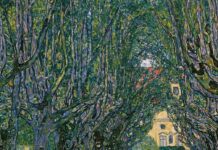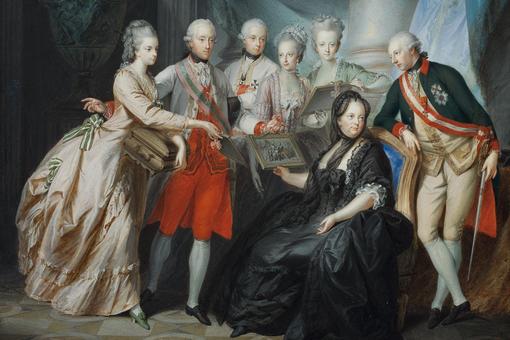This is the first exhibition to investigate Maria Theresa’s relationship to the visual arts. Hence the show concentrates on those artistic genres that were of primary importance in her day. They include portraiture and portrait sculpture, which served the purpose of representing the imperial dynasty (with works by Martin van Meytens the Younger, Franz Xaver Messerschmidt, and Jean-Etienne Liotard). Allegorical paintings and ceiling frescoes, impressive designs for which have survived (such as by Franz Anton Maulbertsch, Daniel Gran, and Gregorio Guglielmi), fulfilled a similar function. In addition, landscape painting was held in high esteem, with Johann Christian Brand having been exceptionally influential for future generations of artists.
As far as sculpture was concerned, the monarch placed her trust in two masters in particular: Balthasar Ferdinand Moll, who was, among other things, responsible for designing the magnificent sarcophaguses in the Capuchin Crypt, and Christian Friedrich Wilhelm Beyer and his collaborators will be represented in the exhibition with their works.
Finally, the focus will be on the Belvedere itself, for the decision to choose it as the home of the imperial gallery was still made during Maria Theresa’s reign. Numerous of the paintings exhibited then continue to be preserved in the Belvedere’s collection of Baroque art, where they create a direct link to the period in question.

 Deutsch
Deutsch


















